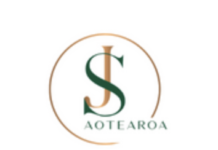At today’s commemoration of the start of the Korean War, Veterans Minister Meka Whaitiri has paid tribute to the service and sacrifice of our New Zealand veterans, their families and both nations.
“It’s an honour to be with our Korean War veterans at Pukeahu National War Memorial Park to commemorate their service and 72 years since the start of the Korean War,” Meka Whaitiri said.
“There is no higher order than serving your country and today is a chance to remember not only their sacrifices, but those of the Korean civilians who suffered during the conflict.
“It is also a time to acknowledge the global instability caused by the war in Ukraine and New Zealand’s ongoing commitment to support the peace and security of all democratic nations.”
On 25 June 1950 the United Nations Security Council called for combat assistance following North Korea’s move across the 38th parallel into South Korea. New Zealand was one of the first states to answer the United Nations Security Council’s call with combat assistance.
More than 4,700 New Zealanders served as a part of Kayforce, including Minister Whaitiri’s father, and a further 1300 Royal New Zealand Navy sailors also took part in tours of duty in the Korean War.
“My father taught my family the importance of duty and service, something that is exemplified by our Korean War veterans who risked their lives to serve our country and help protect the people of Korea.
“New Zealand’s service in Korea underpins the warm relationship our two countries enjoy today, and 2022 represents 60 years of diplomatic relations between Republic of Korea and New Zealand.
“Some 36,000 Koreans currently live in Aotearoa New Zealand and play a vital role in our communities, including close cooperation in the fields of film, science and technology, education and Antarctica.
“The ties between our countries are deep and enduring and today’s service is a timely opportunity to reflect on the relationship founded in New Zealand’s support for Korea during their time in need,” Minister Whaitiri said.
The Korean War lasted until 27 July 1953, when an armistice was agreed. A reduced New Zealand force remained in Korea in a garrison role until the last troops were withdrawn in 1957.
45 New Zealanders lost their lives in the war, 33 of whom were killed in action.





